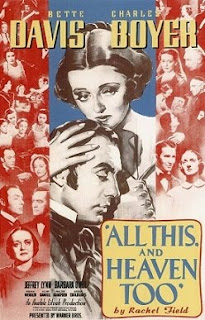1940 - The Letter

I'm back! Yes, I realise there has been a rather elongated pause leading up to this post. It has been a very hectic time for me recently. While I have been performing My Fair Lady, I have also been rehearsing Midlife: The Crisis Musical , the next show to be staged at the Allenberry Playhouse . Consequently, I have essentially been without a day off for two weeks. The only free day I had was last Monday, and that was spent in New York City with my darling wife as well as some family who were visiting from Australia. Plus, some good friends from home, Steve, Susie and Amanda , were also in town for an improv festival, allowing for a long overdue catch-up. It was an enjoyable break from the hustle of rehearsals, but it left me with no time for this project. Thus, today was a relaxing day off in which I finally found some time to watch another nominee from the 1940 Best Picture contest... The Letter Director : William Wyler Screenplay : Howard Koch (based on the play by W. Somerset M...



